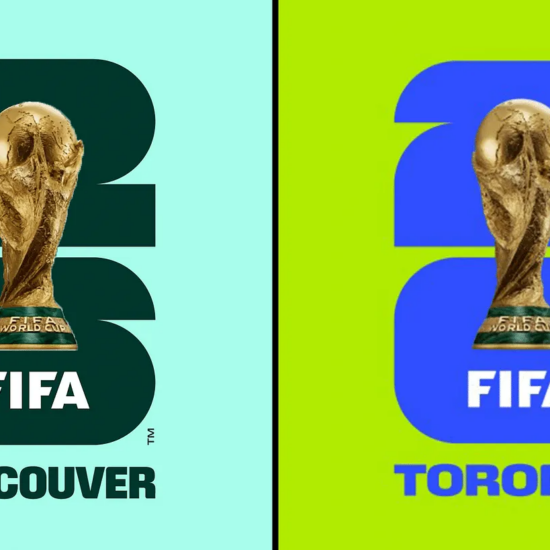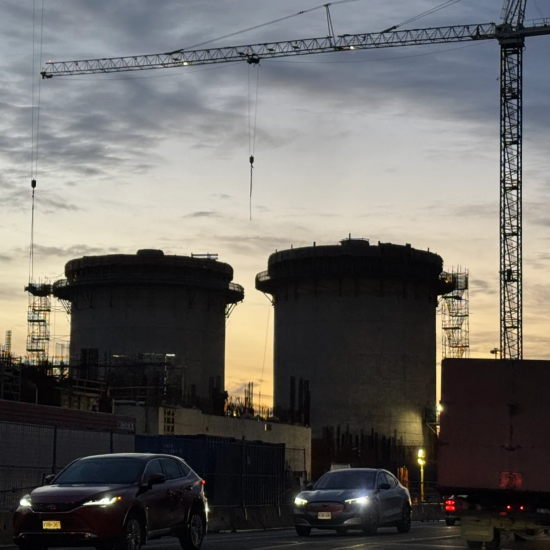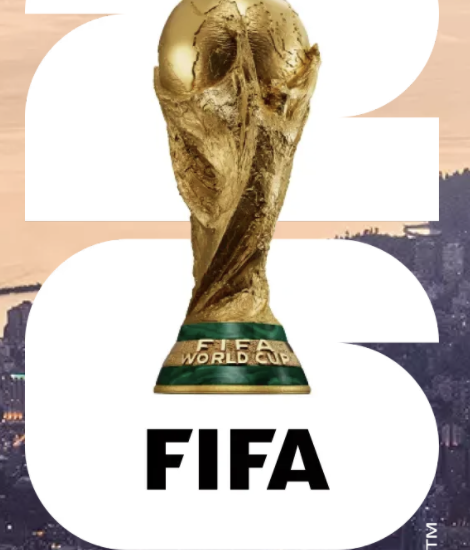
Bob Mackin
Grab an umbrella and jacket, get on your boots. Get out and vote between 8 a.m. and 8 p.m.
The difference between the two main parties in B.C.’s 2024 election is stark.
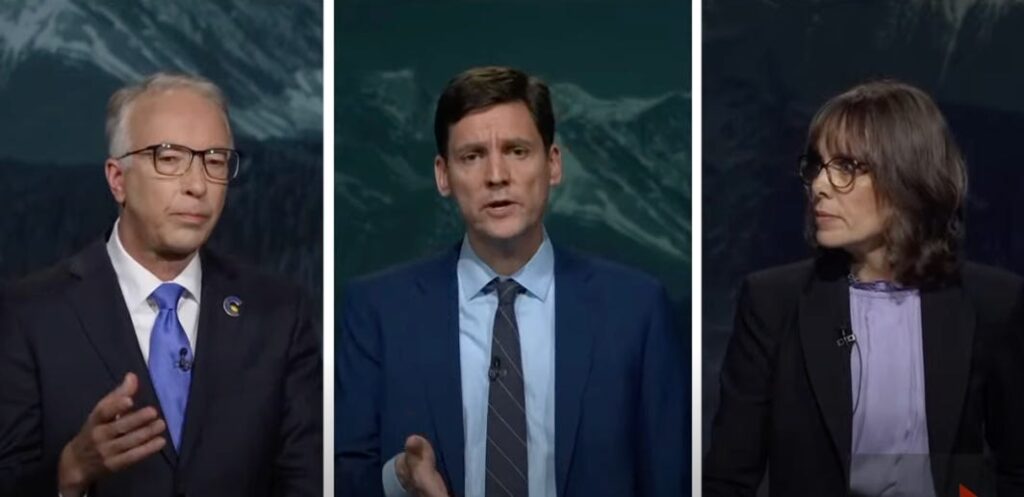
John Rustad (left), David Eby and Sonia Furstenau on Oct. 8 (CBC/YouTube)
One party hurried up and made itself along the way.
The other party made stuff up.
The Conservatives suddenly became the only free enterprise option Aug. 28 when BC United withdrew. It took another three weeks to finalize the 93-candidate dance card. Some of those candidates were not vetted, which led to some embarrassing moments that distracted from the party’s message. The party released most of its platform chapters along the way, but did not put them all together in one document until four days left. Maybe it will hurt at the ballot box. Maybe it won’t.
The NDP, on the other hand, plied a different path to election day.
It was a campaign that pointed out Conservative leader John Rustad’s shortcomings instead of accentuating NDP Premier David Eby’s strong points.
It was a campaign that cast Rustad as a major player in the BC Liberal governemnts of Gordon Campbell and Christy Clark (he was not). A campaign that claimed Rustad wanted to bring back MSP premiums and bridge tolls and go easy on gun-toting gangsters (no, no and no). A campaign that claimed Rustad’s platform planned $4.1 billion in healthcare cuts (totally false —Rustad first agreed with the NDP budget and later promised to top it up by $3.8 billion).
The NDP previously prided itself on sticking to the facts, correcting disinformation by the BC Liberals and taking the high road. Not this time. The gloves were off.
The late politician and talkshow host Rafe Mair was fond of saying that in a sea of twos, all you need to be is a three.
Three could also be a significant number at the end of the day.
In the final Research Co poll, 3% is the NDP’s edge over the Conservatives. Three percent is also the amount of support for independent candidates who, along with the third party Greens, could hold the balance of power in the next session of the Legislative Assembly.
Two years ago today
Late Oct. 19, 2022, Eby became the 37th premier of B.C., by default.
Will the voters of B.C. keep him in the job tonight?
The vote to succeed John Horgan was scheduled to happen Dec. 3, 2022, but was cancelled.
That is because party directors agreed with a report by former NDP finance minister Elizabeth Cull, who recommended disqualification of environmental activist Anjali Appadurai.
Appadurai may have had enough support to become premier, but never got to the finish line. Cull found her team sold fraudulent memberships and she colluded with environmental charities Dogwood Initiative and 350 Canada.

Atiya Jaffar (left) and Anjali Appadurai (Instagram)
Appadurai came into the race a year after nearly winning a federal seat for the NDP in the 2021 election in Vancouver-Granville.
In 2024, Eby made opinionated billionaire Chip Wilson a campaign target. Two years earlier, he raised nearly $384,000 for the campaign, thanks to real estate tycoon donors named Audain, Bai, De Cotiis and Thind.
Eby was sworn-in to succeed Horgan on Nov. 18, 2022 at the Musqueam Indian Band’s Community Centre. He promised 100 days of action with tangible results. He spent a $5.7 billion surplus left by Horgan.
By the time 2024 came along, NDP support slipping, Eby backtracked on decriminalization of drugs, the vaccine mandate for healthcare workers and opposition to involuntary care for drug addicts and the mentally ill. He even dropped his steadfast support for the carbon tax.
“All the other parties that seem to me, in an effort to win votes, are willing to sell their children’s future,” Eby said at the party’s November 2023 convention. “I think it’s unacceptable, we won’t do it and we’ll support strong climate action.”
Eby made his name as a Downtown Eastside lawyer and civil libertarian harshly critical of Vancouver’s 2010 Winter Olympics and the International Olympic Committee. As attorney general and then premier, the NDP agreed to subsidize FIFA for holding seven 2026 World Cup matches at B.C. Place Stadium. It could cost taxpayers nearly $600 million, according to a spring estimate. The host city contract remains secret, thanks, in part, to the B.C. government.
And, one more thing…
The atmospheric river drenching Vancouver Island and the Lower Mainland on election day could adversely impact turnout after a record 1 million-plus took advantage of the early voting days.
Elections BC reported a 54% turnout for the 2020 pandemic election, which relied heavily on vote by mail. In 2017, it was 61%.
Academics agree that the weather can play a role on election day.
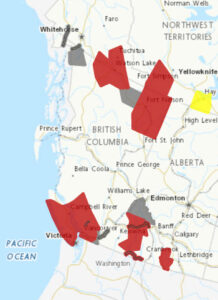
Red areas show large parts of B.C., including the heavily populated southwest, under heavy rain storm warnings for election day (Environment Canada)
The February 2023 edition of Election Studies featured a study from the University of Copenhagen, called When the election rains out and how bad weather excludes marginal voters from turning out. For every centimetre of rain, turnout could be diminished by nearly 1%.
Environment Canada forecasts as much as 15 centimetres of rain by Sunday morning in Metro Vancouver, the Fraser Valley and some parts of Vancouver Island.
According to the abstract:
Ostensibly random and trivial experiences of everyday life, e.g., local weather, can have significant political consequences. First, we present a comprehensive meta-analysis of 34 studies of electoral turnout and rainfall – the vast majority demonstrating a negative association. Secondly, we present a new analysis of a voter panel with validated turnout for a complete electorate merged with fine-grained meteorological observations to show that Election Day rainfall reduces turnout by 0.95 percentage points per centimeter, while more sunshine increases turnout. Marginal voters (young voters) are up to six times more susceptible to bad weather and respond more positively to pleasant weather. Thus, bad weather exacerbates unequal democratic participation by pushing low-propensity voters to abstain. Efforts to include marginal voters therefore ought to be intensified during poor weather, and elections could even be moved to seasons with more pleasant weather to improve participatory equality.
Click here to read the full study.
Support theBreaker.news for as low as $2 a month on Patreon. Find out how. Click here.







